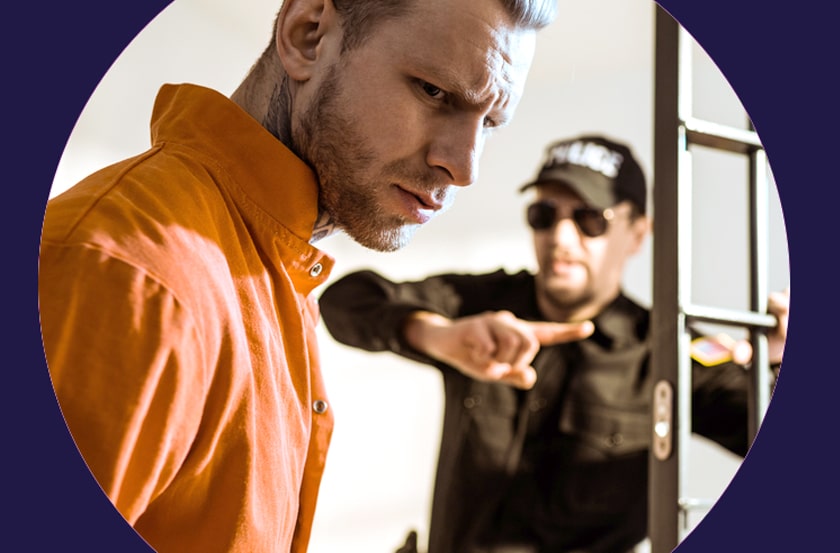Concern about wrongful convictions has emerged across the world in recent years. At times, the wrongfully convicted spent decades in jail before their punishments were canceled. They later ended up suffering from psychological trauma after realizing the wrongs committed to them under the disguise of justice.
Studies have shown that these innocent victims suffer from severe mental illnesses and adjustment problems. After they are released, post-traumatic stress disorder features, personality changes, and other depressive stress disorders have been reported by families of such persons.
The innocent often return only to be shunned and stigmatized. They sacrifice all their assets to pay for legal battles, undergo hurdles like getting a job, and face significant challenges accompanying their new social position.
This article will discuss the impacts of a wrongful conviction on people’s lives, relationships, and sense of self.
The impacts of the wrongfully imprisoned
When a person is interrogated, wrongfully convicted, imprisoned, and then released back, their mental health state becomes identical to that of torture survivors with anxiety, depression, and PTSD. Many studies compare the trauma of wrongfully convicted victims to that of war veterans, concentration camp survivors, and refugees because they are almost similar to wrongful arrests and prosecution after releasing them back into society.
Like a soldier who has been away from their loved ones, when a released person returns to society, they find that nothing was the way they left it and that life has continued to move on without them. They are haunted by what they have been through and have seen. They may also continue to suffer from PTSD symptoms, including difficulty sleeping, reoccurring nightmares, and the inability to readjust to everyday life.
Craig Haney, an expert on the psychological effects of incarceration, describes the pains of imprisonment as: “the prolonged adaptation to the deprivations and frustrations of life inside the prison that threaten greater psychological distress and potential long-term dysfunction.” He further explained that adaptation to imprisonment is difficult and that it ends up creating habits of overthinking and acting that can be dysfunctional while adjusting to life after prison.
Prison is extremely painful, and these victims often suffer long-term consequences from exposure to pain and atypical norms of living, negatively affecting their mental health. The post-traumatic reaction includes ongoing PTSD symptoms, reliving the event, and having bad memories, flashbacks, or nightmares. This leads to insomnia, numbness, or difficulty expressing feelings and avoiding situations or people who remind them of the event.
The forms of suffering and damage experienced by these victims and their families are numerous. These individuals’ life courses are permanently changed, and from missing life opportunities, they suffer losses-of relationships and years of their expected life history. The harms extend over time and generations, and the distress is often severe that they sometimes wish to go back inside as they do not like to experience the feeling of being a burden on their family.
Haney concludes that “adapting to the harsh realities of prison life may negatively change a prisoner’s habits of thinking and acting in ways that can persist long after his or her incarceration has ended.”
Usually, the experience of being in prison has a long-lasting effect on all inmates. All prisoners must learn to cope with imprisonment and the harsh conditions of prison standards and health care, solitary confinement, sexual abuse, and violence. However, the impact of imprisonment on wrongfully convicted individuals goes beyond that, as they are victims of miscarriages of justice. Psychiatrist Terry Kupers describes the effect of incarceration on wrongly convicted victims: “The sense that harsh punishment is being imposed unfairly makes it much more difficult to tolerate…the kind of hopelessness that can lead to suicide is intensified by the knowledge that even though one is innocent, nobody cares about the unfairness of the punishment.”
Furthermore, these victims have difficulty finding jobs because most employers ask about a person’s criminal record. Since wrongful conviction is not automatically deleted from their criminal records, they can not lie. Honestly speaking, most employers are not comfortable hiring people with a criminal record. As a result, there is often no income stream or health insurance coverage and little sense of purpose.
Ada JoAnn Taylor, one of the defendants wrongfully convicted in 1990 for the rape and murder of a 68-year-old person, spoke about the difficulties she faced after her release, “I can’t get insurance. I have doctors that I need to go to because I have a chiropractic problem due to being in prison… I can’t obtain credit because I’ve never had credit, and I’m 45 years old. I can’t get housing because I don’t have the credit to even go get a loan for a house or an apartment or anything of that nature. I can’t get a car for the same reasons. To be able to even think about retirement, that’s not going to happen in my lifetime because I don’t have the way to have a job to save for a retirement fund.”
Thus, we must collect the life histories of the wrongfully convicted and give voice to their experiences. Further, their life stories can help us point out the weaknesses in the criminal justice system and identify remedial steps that can be taken to prevent other wrongful convictions by enhancing the accuracy of these criminal investigations, protecting the innocent, and having the potential to improve the lives of individuals, families, and communities.
Not to undermine these victims’ hardships and the negative consequences of their wrongful convictions, it is also essential to recognize that, even with such a traumatic experience, there is still a possibility of a positive outcome.
There is strong evidence that rebuilding shattered lives and growing while coping with their grief is possible. It is vital to gain a better level of understanding of their trauma, which will help them put back the pieces of their shattered lives together.
Some women and men have gone through the most terrible experiences of wrongful conviction, personally or as a supporter, and have restarted their lives by finding a will to live freely again, by finding the meaning in what they experienced, by discovering the restorative value of the beautiful things around them and by becoming an essential part towards helping others.
If you’re considering financing your lawsuit and are ready to learn more about qualifying for lawsuit financing, visit Baker Street Funding Lawsuit Loans today.









